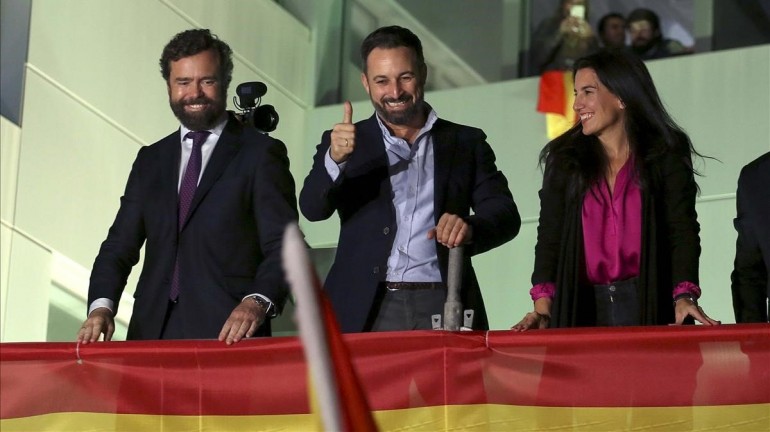Back Spanish elections in Hegoalde: five things that can be said with some or some certainty
- It has been known on Tuesday that the Spanish elections will be repeated. The Basques of Hegoalde will meet again on 10 November at the polls and the pre-campaign is already underway. Despite what politicians say, we have picked up five things that can be said with some or some certainty about those elections.

Four elections to elect the Parliament of Spain in five years
This is an unprecedented situation since the entry into force of the 1978 regime as a sign of the institutional instability experienced by the Spanish State. Since the collapse of the scheme based on the alternation of two major parties (PP and PSOE) for decades, the pathetic inability of Spanish parties has been evidenced, as well as the desire of certain parties and interest groups to recover bipartisanship.
PP budgets remain in place
In mid-2018, Mariano Rajoy was dismissed as President of the Spanish Government by a motion of censure, but the budgets of this right-wing government remain in place. These are accounts designed by former Economic Minister Cristóbal Montoro and in which the PSOE has not managed to approve a new budget with the rest of the formations in one year and three months. The State will arrive by 2020 with the accounts carried forward, waiting for the new votes to take place.
EUR 140 million in cost
This year the citizens of Hego Euskal Herria will vote twice in the general elections to be held in Spain. The fact that Pedro Sánchez decides that the dice must be thrown back has, in addition to the budgets, other economic consequences: In total, the Spanish State has spent EUR 540 million in the organisation of elections over the past four years.
The favorite decision of big business
In the face of the feeling of tiredness and boredom of re-voting in the elections among many citizens, there is one sector in the Spanish State that seems quite satisfied: the big business. The president of the Spanish employers' association CEOE, Antonio Garamendi, said on Wednesday that: “To see what we’re seeing, it may be better to make choices.” The business sectors were not satisfied with the possibility of a coalition government between the PSOE and the United Nations Podemos and seem to have influenced Sánchez’s decision.
The key may be in abstention
And in the midst of that climate, the forecasts for the November elections have already begun. The 28 April elections mobilised many right-wing and left-wing voters as they polarized the chances of winning ultra-right blocks. After several months of accusations between politicians, in the next appointment with the ballot boxes, citizens can take two positions: change the previous vote or, directly, do not vote. And this second issue can be the key in the composition of Parliament.
Remember when the first bite was: 28 April 2019. Because it coincided with the elections in Spain. It happened in the most stupid way: when he took the voting role of the party that always votes – by tradition, by conformism, even by a point of abouga – and put it in the... [+]
It is no wonder that the Greek party Syriza and the former lehendakari Tsipras have not been seen or heard at all in this campaign, despite, I believe, the Greek experience. Deliberately forgotten to the people, but very present in the campaign designs. Remember the programme... [+]
"All politicians are equal." Every time I hear this phrase, I get impatience. The same impatience that I experience when I hear someone proclaim to be a politician or a citizen of the world.
It also happens to me with other rounds of another kind: they can be lighter – in a... [+]
To listen to the full session:















